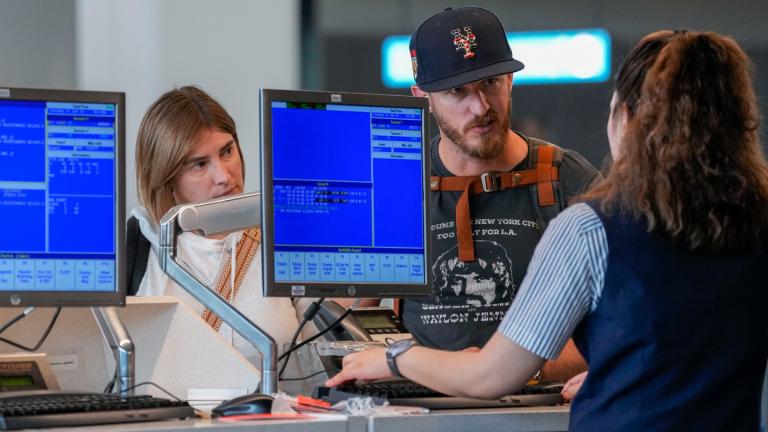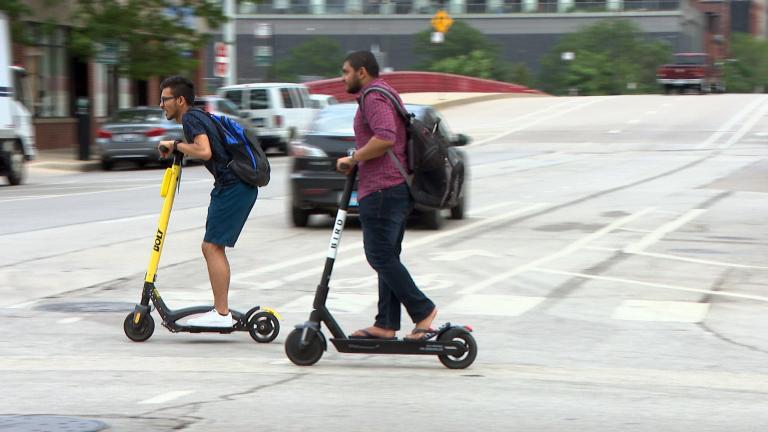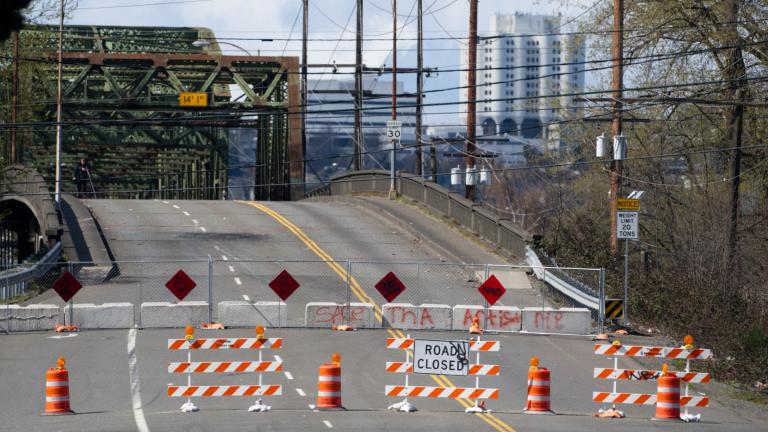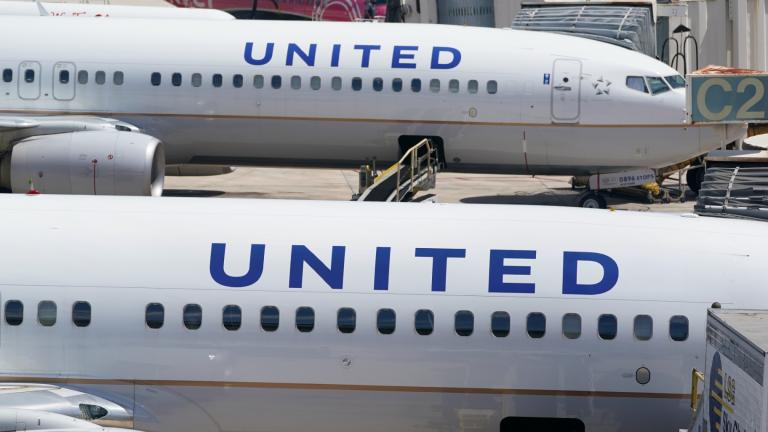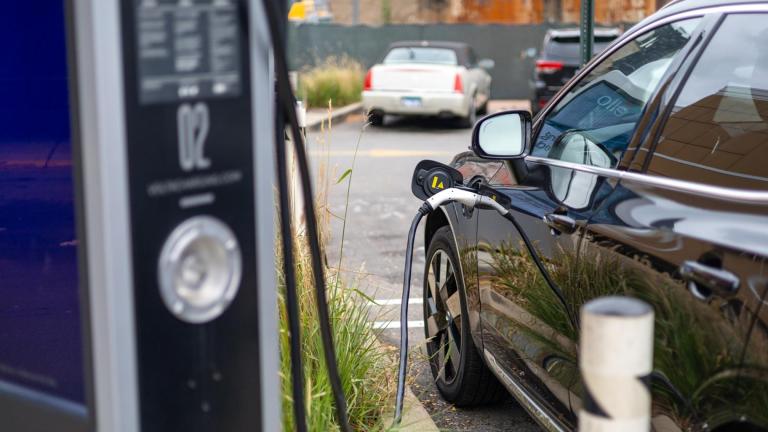Commuter rail agency Metra is grappling with a huge drop in ridership and revenue, seeing the largest passenger decline of any of the Chicago-area transit systems. On Tuesday, the agency launched its “My Metra” campaign aimed at making former riders and new passengers feel safe taking the train.
“Riders can commute with confidence,” said Janice Thomas, Metra’s chief of staff. “We’re cleaning, disinfecting, (and) sanitizing our trains on a daily basis. If you haven’t taken a ride recently, I encourage you to do so. You’ll see spotless cars that look almost new.”
In addition to its enhanced cleaning practices, Metra officials promoted a one-seat-per-passenger policy designed to encourage physical distancing, as well as a mask requirement for riders, hand sanitizer available in each car, and a ridership dashboard showing when trains are more or less likely to be full.
Trains also have a hospital-grade air filter, and get fresh air circulated through each car once every four minutes, said Metra CEO and Executive Director Jim Derwinski.
“Traditionally, those have obviously been not as (much of) a concern, but now with COVID this actually turns out to be something that’s very good, integrally built into the train car,” Derwinski said. “We’re actually starting to look at other technologies that we can incorporate into the air filtration system to make it even safer.”
Metra’s ridership is currently at about 10% of normal levels. The agency projects that could rise to about 20% by the end of the year, if it rises at all.
“I think uncertainty has been one of the big impediments to people coming back — both uncertainty from employees not knowing whether or not it’s safe to come back, and uncertainty from employers,” Derwinski said. “We decided it’s time for us to get out with our message and tell people, employers, employees of the region how safe it is to ride on Metra.”
The decline in ridership has also meant a huge decline in revenue. Metra estimates it will see a $330 million drop in passenger and sales tax revenue this year, and a $350 million decline next year. While the agency got about $480 million in stimulus funding through the CARES Act, the massive decline means that money won’t last long.
“(If we) do nothing, which is not what we’re going to do, about mid-summer next year we’re going to be in trouble,” Derwinski said. “Certainly, we’re looking for additional stimulus money. We’re also looking to do anything we can, including a campaign like this, to increase ridership, which is our revenue stream.”
But Derwinski thinks it’s “highly likely” transit agencies will see more stimulus money. “Metra’s not unique in the region, the state, or the country. There is complete need out there,” he said.
Another revenue hit the agency is facing: on the three Metra lines operated by Union Pacific, UP has not had conductors move through the train and collect fares due to the coronavirus. (On Metra’s other eight lines, conductors are collecting fares as usual.) The free rides have added up to about $1 million a month in lost revenue.
“We’ve been in constant conversation with Union Pacific talking about what we’ve been doing on the other eight lines,” Derwinski said. “I think we’re close, closer than we’ve ever been, to at least resuming some amount of fare collection over there. Hopefully, you’ll be seeing some action on that in the forthcoming weeks.”
Derwinski said even if you don’t ride Metra, it’s a boon to the Chicago area.
“Every time we take a thousand people on a train, pre-COVID, we’re taking about five, six, seven hundred cars off the road. We improve the environment, we improve the region, and we really stabilize the economy,” he said.

